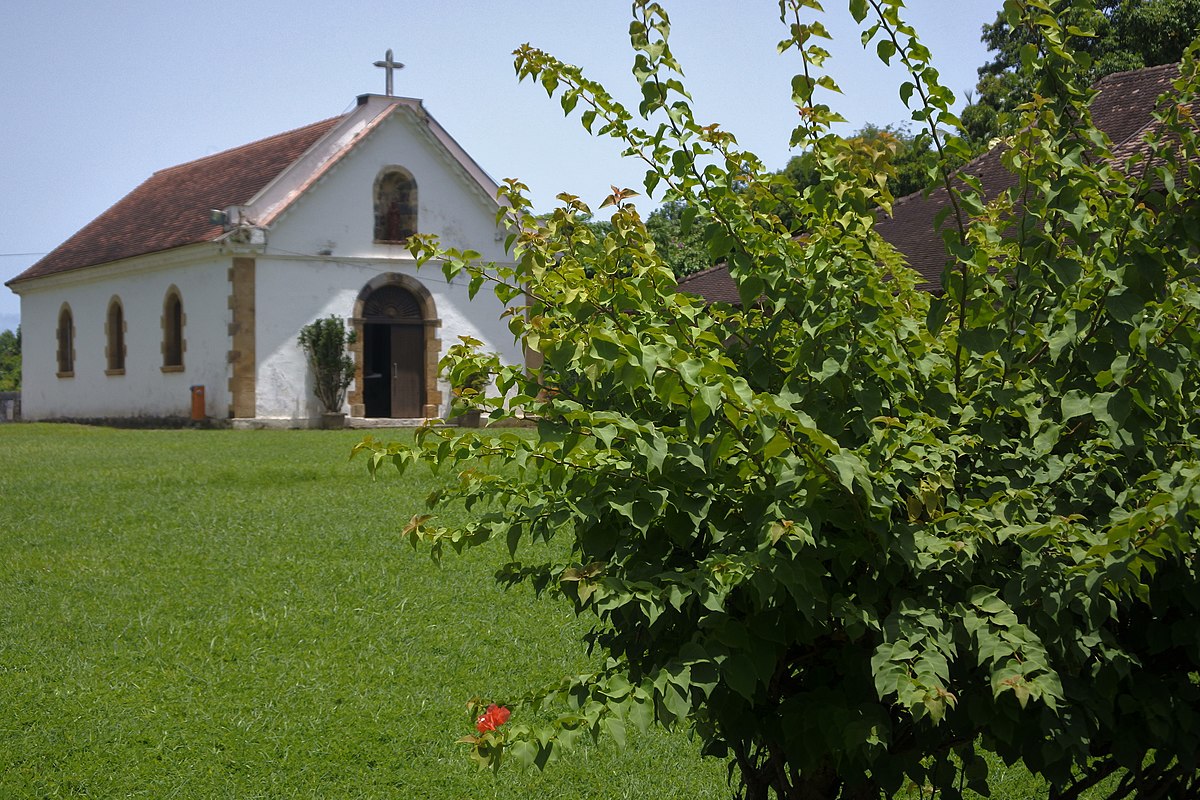Jesuit Scandal in the Caribbean
"The Lavalette Affair" and the Expulsion of the Jesuits from French Territories

Photo of the land on which a sugar cane plantation stood in the 17th century on the island of Martinique, complete with chapel. The Society of Jesus was one of the largest slave owners in the Caribbean: at the time of Lavalette, it owned about 1,800 slaves in the overseas French domains. Image from Commons.wikimedia.org
In 1741, the Jesuit Antoine Lavalette was sent to the Caribbean island of Martinique, then a French colony. His task was to restore the finances of the Jesuit mission there. He initiated extensive projects to expand the local plantation, also investing in the nearby island of Dominica, which was also under French control. Additionally, he purchased numerous black slaves, using them as woodcutters and laborers. Initially, business went well, and the mission prospered through the export of sugar and coffee. However, to complete his investments, Lavalette had gone into debt, finding himself burdened with creditors. Rumors spread about his financial dealings, and in 1753, he was summoned to account for his actions to the General of the Company, Ignazio Visconti. Visconti allowed him to return to the island, but only on the condition that he abandon his lucrative trade. Lavalette ignored the order, but things began to go awry: first, with the outbreak of the Seven Years' War, English privateers made exports to France impossible; a series of hurricanes damaged the plantations, and an epidemic decimated the slaves. Lavalette was no longer able to repay his creditors. Moreover, following the resurgence of bad rumors about him, in 1761, the Jesuit Jean Francois de la Marche was sent to the island to investigate further. De la Marche discovered that Lavalette had tortured and then killed four slaves. Lavalette justified himself by claiming that among the blacks were hiding sorcerers and poisoners, but this was not enough to prevent de la Marche from reporting the matter to the new General, Lorenzo Ricci, who declared Lavalette guilty of murder. The General recalled him to Europe and ordered his removal, not as a murderer but because he was guilty of "profane commerce." The Order, in fact, did not want to provide further pretext for attacks from its detractors. Meanwhile, the Company refused to pay the substantial debts incurred by Lavalette, which led King Louis XV, under pressure from the Parisian parliament, to ban all Jesuits from French territories.
Book: Claudio Ferlan, I gesuiti , Il Mulino, 2015
Site: "Brill.com", Antoine Lavalette , Slave Murder : A Forgotten Scandal of the French West Indies , Andrew Dial, 2020
2025-09-14
Salvatore Ciccarello
